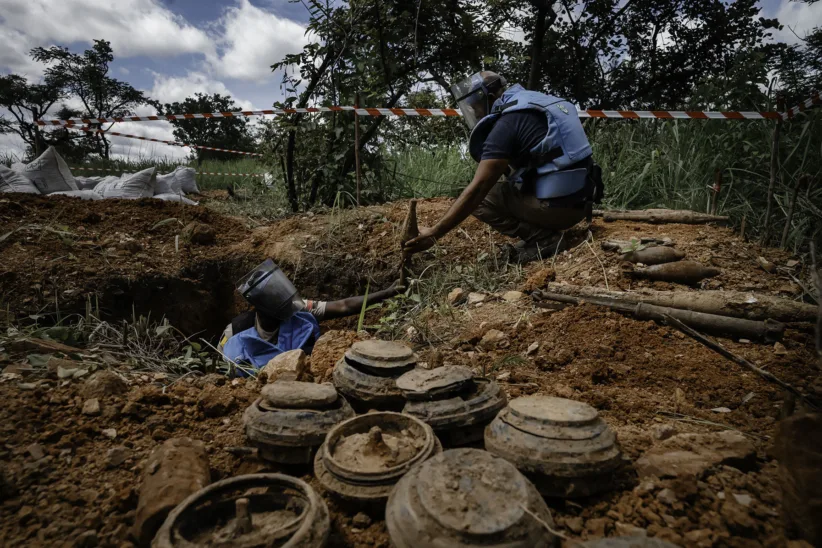Norwegian People's Aid strongly condemns the joint intention of the Baltic states and Poland to withdraw from the Anti-Personnel Mine Ban Convention
The Norwegian People's Aid is deeply concerned about the recent joint announcement by the Ministries of Defense of Poland, Lithuania, Estonia, and Latvia, recommending a withdrawal from the Anti-Personnel Mine Ban Convention (APMBC). A step that puts the protection of civilians at great risk and undermines the importance of international humanitarian law (IHL).

The APMBC, which became a reality in Oslo in 1997, put a stop to the humanitarian crisis caused by widespread use of anti-personnel mines. This Convention is a cornerstone of IHL and has wide international support—today, 164 states are parties to the Convention, recognizing that anti-personnel mines have no place in modern warfare. Creating a stigma and norm against the use of these indiscriminate weapons, the Convention has been and is a massive success, saving millions of lives and limbs.
While security concerns of the countries are understandable, anti-personnel mines have no real military utility when it comes to defending against the enemy at the frontlines. Anti-personnel mines are outdated, Cold-war era weapons, and tactical military benefit is insignificant, providing only a false sense of security. Simply put, anti-personnel mines do not win wars, but they do harm civilians both during and after the conflict and for the generations to come.
Anti-personnel mines ensure that the consequences of war persist long after the conflict has ended. They remain in the ground for decades, continuing to pose a risk to civilian lives—something Norwegian People’s Aid witness daily through our work in affected countries around the world. These weapons indiscriminately kill and maim, with no distinction between a soldier in combat and a child at play. Last year, 84% of recorded landmine casualties were civilians—37% of them children. They block humanitarian access and life-saving emergency aid, disrupt livelihoods, impede peace and reconciliation efforts, and prevent reconstruction and development for generations.
"Leaving the Anti-Personnel Mine Ban Convention means actively choosing a path of lower civilian protection that leads to more civilian casualties, more suffering, and greater obstacles to post-conflict recovery. This is not about military necessity as we know that security in the modern world cannot be ensured by outdated weapons such as landmines. Poland, Lithuania, Estonia, and Latvia should reconsider their stance and uphold their clear commitment to protecting civilians," says Aksel Steen-Nilsen, Head of Mine Action and Disarmament Department of Norwegian People's Aid.
As European countries strengthen their defense, the choice of weapons matters. We must be clear that indiscriminate weapons with documented unacceptable humanitarian consequences have no place in European defense strategies.
The reinforcement of European countries’ defense is both important and urgent, but it must be done in accordance with international law and humanitarian principles. Defense resources must not be wasted on ineffective and obsolete weapons, that is the fastest way to weaken a country’s defense, rather than enhance it. Investing in anti-personnel mines as part of defense strategy is a waste of precious time and resources.
At a time when global security challenges require a strengthening of international rules and humanitarian commitments, withdrawing from the APMBC sends a dangerous signal based on illusions and not decades of hard evidence. We urge Poland, Lithuania, Estonia, and Latvia to reconsider this ill-informed decision and reaffirm their commitment to protecting civilians and upholding IHL. If not, they are playing into the hands of those who have demonstrated their desire to violate and undermine a rules-based world order.
For more information, please contact our Head of Mine Action and Disarmament Department: Aksel Steen-Nilsen, +47 90832554.
